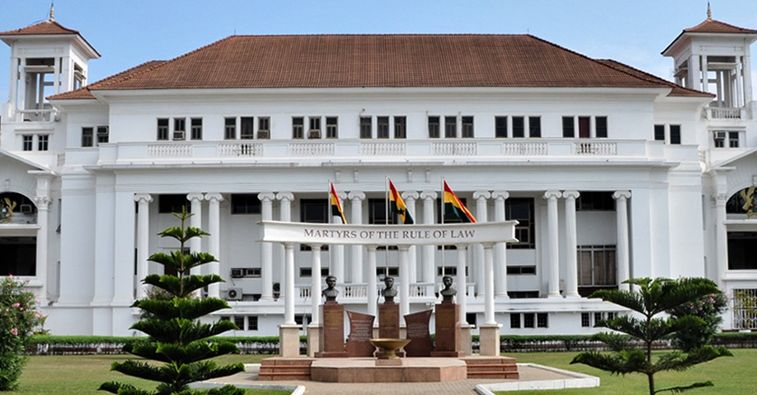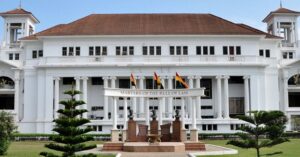The Bank of Ghana made a loss of GH¢60.81 billion in 2022. It recorded a profit of GH¢1.23 billion in the 2021. Some people have wondered whether the central bank was a profit-seeking business like a commercial bank. Others have wondered how the central bank, with the power to print money, can make a loss.
The power to print money must be exercised responsibly. Otherwise, it can result in hyperinflation and wreck an economy. It can also be used as a tool of redistribution by printing money and illegally transferring it to certain individuals and organizations. After episodes of high inflation in the 1960s and 1970s, many central bankers fought for, and won, more freedom to control interest rates and take other monetary policy decisions without political interference. This intended to nullify the impact of the perverse incentive of politicians to run large budget deficits and finance them by printing money. In 1985, Kenneth Rogoff, a professor of economics at Harvard University, published a seminal paper in the Quarterly Journal of Economics. In it, he proposed the delegation of monetary policy to an independent and “conservative” central banker (governor) who, based on his/her track record, is more averse to inflation than the government in the sense that the central banker places a bigger weight on the economic costs of inflation than the government does. This conservative central banker, given that s/he is sufficiently averse to inflation, will engage in more responsible money printing than a government in charge of money printing.
However, the solution proposed by Ken Rogoff or the independence of central banks only kicks the can down the road. In reality, central bankers, even if they are not politicians, are not angels. They may also have perverse incentives. The transfer of power from one human being to another human being may not be a solution to the problem of the abuse of power. Thus, the independence of central banks is not perfect or may not be an efficient solution to the problem of the abuse of the power to print money. There must be laws to control central banks.
A central bank’s costs of operations include the salaries of its staff, printing notes and coins; utility bills (electricity, water, etc); equipment and machines; forex losses during exchange rate movements; etc. In 2022, the Bank of Ghana spent GH¢131 million on motor vehicle maintenance; GH¢ 1.62 billion on its staff (more than 2000); GH¢ 94.43 on domestic and foreign travels; GH¢ 67.98 on computer-related and banking supervision, etc (https://www.ghanaweb.com/GhanaHomePage/business/BoG-spends-over-GH-131-million-on-motor-vehicle-maintenance-in-2022-Report-1814585).
A central bank prints money to (1) facilitate economic transactions (i.e., as more goods and services are produced in an economy), (2) to replace worn-out paper currency (notes), and (3) to conduct monetary policy, which includes stimulating the economy during a recession. Printing money for any other purpose is illegal. Just as a politician is not supposed to print money to finance budget deficits (expenses), the governor of a central bank is also not supposed to print money to finance its costs of operations, other than the three operations listed above. A central bank cannot print money to pay its workers, utility bills, the cost of equipment and buildings, etc. Otherwise, this defeats the purpose for which the power to print money was transferred from politicians (central government) to central bankers.
A central bank earns income through the interest earned on government bonds purchased in the secondary market (as part of monetary policy); banking services (e.g., fees from banking supervisions; issuing/renewing licenses of banks; savings and loans, etc); interest earned on loans given to commercial banks (as a lender of last resort); the sale of foreign exchange; interest from the management of foreign exchange reserves, etc. Money printing is also a source of revenue (seigniorage) to central banks because the cost of printing currency (paper) is much less than the face value of currencies. In 2023, it cost — the US Federal Reserve Bank — 5.3 cents to produce a $20 note, and 8.6 cents to produce a $100 note (https://www.federalreserve.gov/faqs/currency_12771.htm).
A central bank can make a loss because (a) it has costs of operations, and (b) it should not print money irresponsibly (to cover its costs of operations). Just like a commercial, a central bank can lose huge sums of money through non-performing loans. These are loans given to commercial banks and the central government. In 2022, the Bank of Ghana had to write off an amount of 77 billion cedis which was debt owed by the government of Ghana because the government was broke.
Central banks make profits. But profit-seeking is not their main goal (e.g., see the article below by Agustín Carstens, General Manager of the Bank for International Settlements and former governor of the central bank of Mexico). A central bank can make a loss for the same reason that central governments, with the power to print money or control central banks, can run budget deficits and create economic problems that result in social unrest.
As indicated above, printing money is a necessary function of a central bank. However, if a central bank prints money to facilitate economic transactions but at a rate that is faster than the rate of economic growth (the rate at which goods and services are produced), this will result in high/hyper inflation. The historical evidence is copious. The output of goods and services (what we actually consume), not paper or electronic money, should be our focus. Therefore, whenever you think of money printing by a central bank, you should ask “have we produced a commensurate amount of goods and services?”
The requirement that a government should finance deficits by borrowing, not by printing money, is necessary to hold governments accountable and it is to ensure that deficits are financed via the output of goods and services. Note that, in general, taxpayers and those who lend money to governments, got their money from payments for their goods and services (i.e., output), legitimate economic activities. The social effects of money laundering and money earned through other illegitimate activities are poverty and inequality in an economy.
There are three main entities in an economy: the government, corporations/organizations, and households. Corporations and households are expected to earn money by providing goods and services (output). To avoid perverse incentives, the government must be held to the same standard. It has to earn income (e.g., taxes, royalties, user fees) by providing goods and services (public goods) and it has to service its debt via its earned income. A government that can easily print money will spend frivolously and significantly reduce the real value (purchasing power) of money through inflation. Even without the power to print money, governments spend frivolously and mismanage economies. Giving them the extra power to print money will worsen the situation.
Although the Bank of Ghana is independent, it is owned by the government of Ghana. Therefore, a part of any profit by the Bank of Ghana is *transferred to the government of Ghana* (e.g., put in the Consolidated Fund). Thus, an incentive problem remains. Section 6(2) of the Bank of Ghana Act (Act 612) provides that “At the end of each financial year of the Bank, *after allowing for the operational expenses out of its income* and after provision has been made for bad and doubtful debts, depreciation of assets, replacement of currency, development fund, contributions to staff and superannuation fund and other contingencies, there shall be transferred to the General Reserve Fund …”
Like any state-owned enterprise, monitoring the Bank of Ghana requires that its *operational expenses* must be consistent with judicious fiscal management. The financial accounts of central banks, including the Bank of Ghana, are audited. For example, the Bank of Canada is audited by two independent firms every year. The Auditor General of Canada has legal authority to investigate and audit the activities and records of the Bank of Canada.
Yet, external auditors are also human beings. Parliamentary oversight is also by human beings. This boils down to the perennial and thorny problem of “who watches the watchman?”, including “who enforces existing laws?”. This problem is not unique to the Bank of Ghana or central banks. It is a general problem of governance. Wahala never dey finish. No matter the rules and laws in place, every society needs a few good men and women because institutions and laws are managed and enforced by human beings.
*Reference*
Agustín Carstens, Central banks are not here to make profits. *The Bank for International Settlements*, February 9, 2023 (https://www.bis.org/speeches/sp230209.htm#:~:text=Unlike%20businesses%2C%20central%20banks%20are,profit%2C%20but%20the%20public%20good).
Kenneth Rogoff, The Optimal Degree of Commitment to an Intermediate Target. *Quarterly Journal of Economics* 100 (1985), 1169 – 1190.
*Appendix*
*BANK OF GHANA ACT, 2002, (ACT 612)*
Section 6 — General Reserve Fund, Payment into Consolidated Fund
(1) There shall be a General Reserve Fund of the Bank.
(2) At the end of each financial year of the Bank, *after allowing for the operational expenses out of its income and after provision has been made for bad and doubtful debts, depreciation of assets, replacement of currency, development fund, contributions to staff and superannuation fund and other contingencies*, there shall be transferred to the General Reserve Fund, (a) one-half of the net profit of the Bank if the amount of money in that Fund is less than the paid-up capital of the Bank; or (b) one-quarter of the net profit of the Bank, if the amount of money in that Fund is less than twice the amount of the paid-up capital of the Bank.
(3) *Money that remains after the transfer under subsection (2) shall (a) where there is a balance of government indebtedness in the books of the Bank, be used to set off the indebtedness; and (b) where there is no balance of government indebtedness in the books of the Bank, be paid into the Consolidated Fund.*
(4) Where at the end of a financial year the amount of money in the General Reserve Fund is more than twice the amount of the paid-up capital, *a proportion of the profit, as may be agreed upon between the Bank and the Minister, shall be paid into the Consolidated Fund.*
 J. Atsu Amegashie (PhD) is a Democracy and Development (D&D) Fellow of the Ghana Center for Democratic Development (CDD-Ghana)
J. Atsu Amegashie (PhD) is a Democracy and Development (D&D) Fellow of the Ghana Center for Democratic Development (CDD-Ghana)















